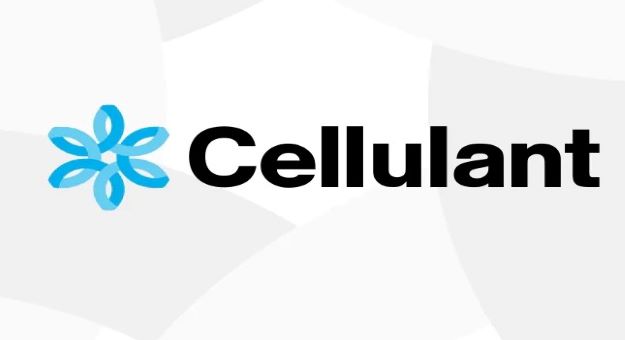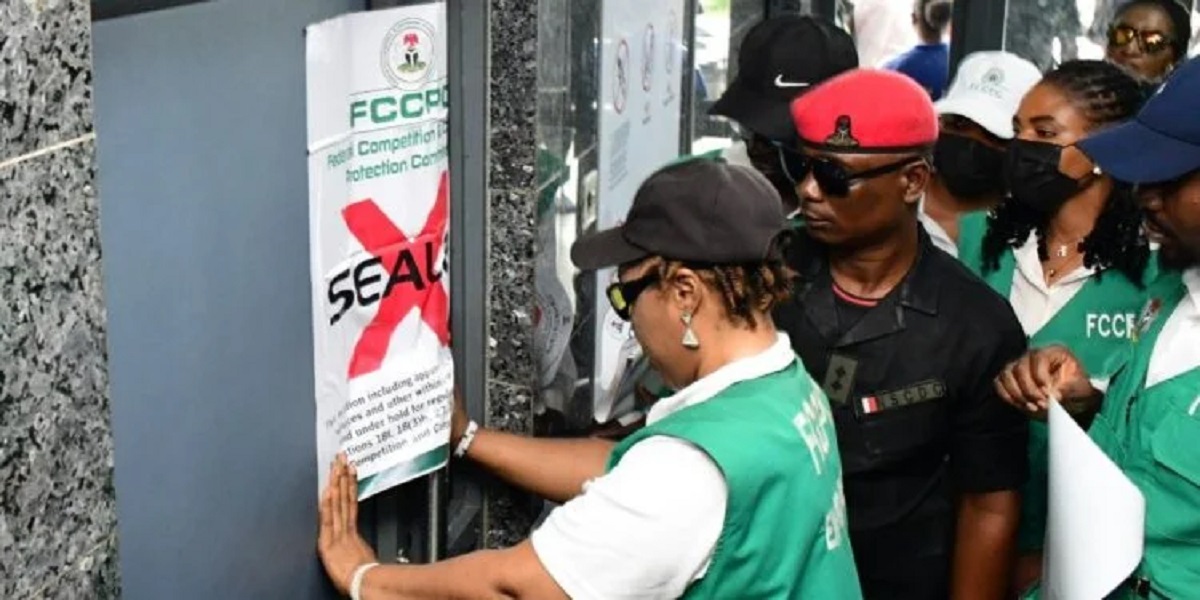News
CBN Renews Cellulant’s Payment Service Solution Provider Licence

The Central Bank of Nigeria (CBN) has renewed Cellulant’s Payment Service Solution Provider License in Nigeria. This license enables Cellulant to continue providing online and offline payment solutions, including collections, check-out, biller aggregation, and payout services securely to thousands of businesses across Nigeria.

Cellulant’s digital payments platform, Tingg- enables businesses to seamlessly accept and make payments offline and online. A single integrated digital payments solution, Tingg addresses the complex needs of managing payments by simplifying the payment experience for the end-user and providing tools and processes for a merchant to manage their collections from a single dashboard.
“At Cellulant, we are committed to providing innovative and accessible digital payment solutions to businesses in Nigeria, which play a pivotal role in enabling financial inclusion and driving economic growth in the country.
“The renewal of our license is a vote of confidence from the Central Bank of Nigeria on the efforts of our team and partners, who have worked tirelessly to create safe and secure solutions that meet the evolving needs of businesses in Nigeria and the regulatory standards.
“Tingg is now used by thousands of businesses and outlets in the 36 states across Nigeria, enabling businesses to easily collect and make payments, monitor transactions, reconcile and settle cash seamlessly,” said Akshay Grover, Cellulant’s Group CEO.
Nigerian consumers have different payment options, including card, mobile money, bank transfer and cash- with volatile currency fluctuations and no single settlement framework. As a result, the demand for digital payments continues to increase.
Roughly 50% of retail customers request to pay for their purchases using digital payment options. However, this demand presents several challenges for most merchants who might not always support the customer’s preferred payment method, resulting in merchants having to enable multiple solutions to support multiple wallets and varying processes for settlement and reversals for a merchant.
Tingg solves these challenges by delivering a single solution to accept all digital payment methods (Bank Transfers, USSD payments, Cards & Mobile Money) maintained with the highest compliance and security standards.
Frances Diribe, Cellulant’s Group Chief Risk & Compliance Officer, said, “Cellulant is dedicated to meeting the highest standards of risk and compliance management as we understand the importance of maintaining the integrity of our payment platform.
“We have invested heavily in robust security measures and compliance processes to ensure our customers can confidently use our services. We welcome this news that showcases our compliance with the standards, directives, and regulations of the Central Bank of Nigeria.”
In addition to being licensed to operate as a Payments Service Provider in multiple African countries, including Kenya, Ghana, Uganda, Botswana, and Zambia, Cellulant has also achieved global security, privacy, business continuity and service management standards. The company’s certifications include ISO 27001 (ISMS), ISO 27701 (PIMS), ISO 22301 (BCMS), ISO 20000-1 (Service Management) and PCI-DSS.
News
DBN Awards N13m in Grants to Tech Startups

Development Bank of Nigeria (DBN) has awarded a total of N13 million in grants to three standout tech startups at the 2025 Techpreneur Summit held in Lagos, reinforcing its commitment to innovation and inclusive growth among Nigeria’s micro, small, and medium enterprises (MSMEs).

The winners include: BuyScrap, a digital marketplace for recyclable materials – N6 million; Qiqi Farms, which connects local farmers to hospitality and export markets – N4 million; Eco-Cyclers, a youth-led recycling initiative based in Enugu – N3 million
Alongside the grant awards, DBN also launched a new digital data asset, a first-of-its-kind platform aimed at enabling data-driven decisions within the MSME ecosystem.
The platform offers deep insights into business trends, sector-specific challenges, and growth opportunities—supporting smarter policymaking and targeted investments.
In his keynote address in Lagos, Tony Okpanachi, managing director/ CEO, DBN, described the event’s theme, “CTRL + SHIFT: Tech Empowered Movement for Naija,” as a strategic call to reimagine enterprise development in Nigeria.
“This isn’t just a keyboard shortcut,” he said. “It’s a mindset reset—powered by technology—to build a more inclusive, innovative, and resilient business landscape. From financing to innovation, DBN remains committed to enabling MSMEs to thrive.”
Okpanachi emphasized that the Summit aligns with DBN’s AMPLIFI Strategy, which integrates digital transformation, sustainability, and scalability into its core programs.
He highlighted initiatives such as the Digital Shift Workshops and the Eco-Innovation Challenge as key steps toward embedding innovation in Nigeria’s MSME sector.
Encouraging young innovators, he added: “The future belongs to those bold enough to imagine and build it. DBN is proud to support the ideas that will shape tomorrow.”
A major highlight was the unveiling of the DBN Data Asset—a digital platform designed to provide real-time, evidence-based insights into Nigeria’s MSME landscape.
The platform combines DBN’s proprietary data with external sources like the National Bureau of Statistics (NBS) to offer a comprehensive view of MSME performance by region and sector.
Jeremy Dan Okayi, DBN’s Head of Strategy, Policy & Innovation, described the platform as: “A reservoir of insight, potential, and direction—built on two years of collaboration and shared vision. This tool will support informed decision-making across the public and private sectors.”
News
FCCPC Shuts France, Belgium, and Italy Visa Centres in Abuja Over Alleged Consumer Rights Violations

In a bold enforcement action, the Federal Competition and Consumer Protection Commission (FCCPC), supported by the Nigeria Police Force and the Nigeria Security and Civil Defence Corps (NSCDC), has sealed off the visa application centres of France, Belgium, and Italy in Abuja over alleged consumer protection breaches and obstruction of regulatory investigations.

The affected centres—located at Mukhtar El-Yakub House in the Central Business District and operated by TLS Contact, a Teleperformance Company—were shut down following reports that they refused to accept formal correspondence from the FCCPC regarding a consumer complaint. The Commission cited further infractions, including obstruction of investigation and alleged assault of its officers during lawful duties.
Speaking to journalists at the scene, Mrs. Boladale Adeyinka, Director of Surveillance and Investigations at the FCCPC, explained: “This is an enforcement operation against TLS. On March 25, 2025, we served them a letter to address a consumer complaint, which they refused to accept. Instead, TLS officers assaulted our team, and in a subsequent visit on June 17, they also allegedly assaulted uniformed police officers.”
Citing Section 33 of the Federal Competition and Consumer Protection Act (FCCPA), Mrs. Adeyinka emphasized that failure to comply with Commission directives constitutes a criminal offense, punishable by imprisonment, fines of up to ₦20 million, or both.
TLS has been ordered to appear before the Commission on June 20, 2025, to provide testimony, submit evidence, and make formal depositions. The company may be held liable for any financial losses suffered by applicants due to the disruption of visa services.
Despite multiple requests for comment, management at TLS Contact declined to respond as of press time.
News
How and Why N210 Trillion is Missing in NNPCL – CFO

Adedapo Segun, chief financial officer (CFO), Nigerian National Petroleum Company Limited (NNPC), has explained why there is a missing sum of N210 trillion in the company’s audited financial statement spanning from 2017 to 2023.

According to Segun, the missing funds are cash calls requested by joint venture (JV) partners and settlement to the JVs.
He spokeat a session of the Senate Committee on Public Accounts chaired by Aliyu Wadada.
Segun was responding to an alarm raised by the committee over missing N210 trillion in NNPCL’s audited financial statement.
Recall that Wadada issued a one-week ultimatum to NNPCL to account for the missing N210 trillion.
Reacting, Segun said, “The N103 trillion and N107 trillion are made up of joint venture cash calls that have been requested by the JV operators and JV cash call payments made by NNPCL, which are yet to be reconciled because governance procedures were not done at that time.
“That is why you see the description reflecting those two items would be washed out because they are two sides of the same transaction, which is the cash calls by JV partners and the settlement by NNPCL.”
However, Habu Sadeik, a financial analyst, in a post on X on Thursday, said Segun’s response was unsatisfactory.
Saidik faulted NNPCL’s response about the fund discrepancies, noting that something is not right with the audited financial statement.
“Forget about the senators’ lack of knowledge.
“The CFO’s response is not satisfactory. Are you saying that cash calls worth hundreds of trillions are just appearing on your FS only in 2024 without 31 disclosure?
“If it’s a cash call, why hasn’t the disclosure said so?
“Which cash call is over 100 trillion?
“Something is definitely not right, and I hope they retrospectively correct that FS.
“Someone somewhere did a chef’s work,” he wrote on X.

 Telecom1 day ago
Telecom1 day agoOver 1m Nigerians Reached through MTN Staff’s Digital and Community Outreach

 General News1 day ago
General News1 day agoNASRDA, Galaxy Space Firm Sign MoU on Satellite Connectivity

 Telecom1 day ago
Telecom1 day agoMafab Gets 0724 Number Series, Launches Mcom 5G Brand

 News1 day ago
News1 day agoDBN Awards N13m in Grants to Tech Startups

 News1 day ago
News1 day agoFCCPC Shuts France, Belgium, and Italy Visa Centres in Abuja Over Alleged Consumer Rights Violations

 News2 days ago
News2 days agoHow and Why N210 Trillion is Missing in NNPCL – CFO

 News2 days ago
News2 days agoPalmPay, Glo Launch “Recharge and Win Bonanza 2” with Exciting Prizes

 General News2 days ago
General News2 days agoIHS Nigeria, United Nations Global Compact Host High-Level Dialogue on Sustainability and Greener Business Practices in Nigeria

























